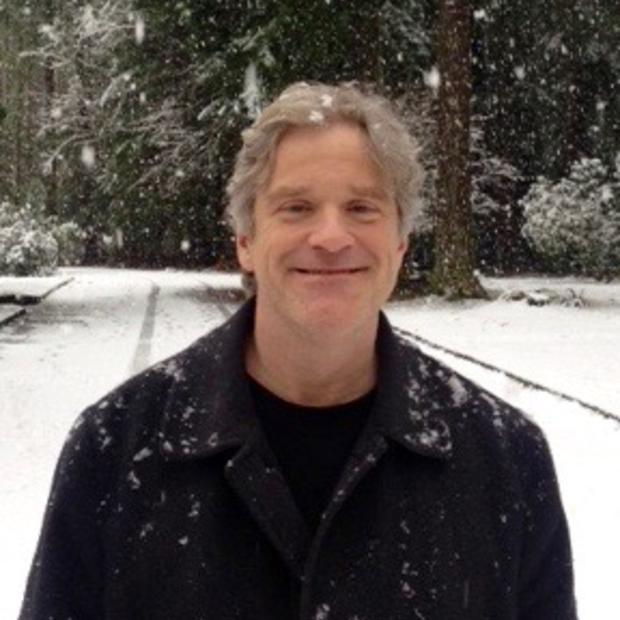By Ted Van Dyk
University of Washington Press, $24.95
The North Sound has produced its share of talented political writers, from Edward R. Murrow (by way of North Carolina) to Bellingham's Joel Connelly. In Heroes, Hacks, and Fools, Ted Van Dyk, a gifted scribe and Whatcom County native, documents a public career of think-tanking, diplomacy, speech writing, and political magoozling for a handful of Democratic heavyweights.
It's local boy done good, and Van Dyk isn't finished yet.
Like the recently published journals of Arthur M. Schlesinger Jr., Van Dyk's narrative is variously inspired, prescriptive, outraged, entertaining, and revealing. The revelations – and there are dozens – are woven in the non-gossipy prose of a seasoned journalist (Van Dyk's post-college profession). LBJ bugged his own vice president (with echoes of future abuses of executive authority); Henry Kissinger was a Humphrey toady until Nixon won in 1968 (did that Machiavellian really win a Nobel Peace Prize)? And as a young man and before he married, George McGovern fathered a child. (Van Dyk notes that H.R. Haldeman later testified that the Nixon campaign was aware of but didn't broadcast the issue. Of course, that was Haldeman's sidestepping of the egregious dirty-tricks campaign targeting other Democratic candidates.)
The most poignant section of Van Dyk's memoir comes early on during the debate over Vietnam and the run-up to the 1968 presidential election. For those of us with just a grainy recall of the 1975 evacuation of the U.S. embassy in Saigon, the behind-the-scenes drama is shattering. Hubert Humphrey's "pleased as punch" veneer disguised a deep anguish over the war and a spirited, bitter debate among White House staff.
And what of President Johnson? Let's be charitable: At least we got Lady Bird.
Younger political junkies may seethe when Van Dyk chips away at the received wisdom of the Democratic Party. The chapter on "Strange Presidents," for example, includes Richard Nixon and Jimmy Carter. Carter, whose legacy will be defined by his post-presidential philanthropy, is portrayed as detail-obsessed, opportunistic, and stand-offish. Van Dyk writes,
... Carter had instituted a White House rule that staff encountering him in corridors were not to make eye contact with him. He did not want his time wasted with smiles or head nods.The question of Carter's treatment of others (as well as Bill Clinton's behind-the-scenes behavior) underlines Van Dyk's appeal: Politics is about people, about character, and about holding the "little guy" sacred in the progressive tradition of the New Deal and FDR. It's a you-can't-take-Bellingham-out-of-the-boy lesson that represents Van Dyk's greatest virtue – and perhaps his greatest liability – in the weasel-ish world of national politics.
The author carries his homegrown values of independence, thrift, and responsibility along with him to Washington. Given the creepy, protean nature of those who gravitate to politics, this creates something of a dilemma. It's a "decency" litmus test that makes for strange bedfellows: Van Dyk supports George McGovern in 1972 (an honorable man and World War II veteran) and Bob Dole in 1996 (an honorable man and World War II veteran). Maybe Van Dyk shouldn't expect a dinner invite from the DNC anytime soon. Nevertheless, from a decency perspective, his judgment and political choices hang together.
Van Dyk, the son of a Dutch-immigrant millworker, is a Great Depression kid with a visceral distaste for self-indulgent Baby Boomers. Generation Xers and post-boomers share the Van Dyk resentment, albeit for different reasons.
Boomers were the kids who turned their backs on Hubert Humphrey in 1968 and who managed to elect a brilliant if disingenuous one-of-their-own in Bill Clinton. They're also the nabobs in charge of the city of Seattle which might fuel some of Van Dyk's anti-Boomerism.
Perhaps the biggest surprise is Van Dyk's Thomas Wolfe, You-Can't-Go-Home-Again quandary upon returning to the Northwest after a decades-long public career. Like most returnees, Van Dyk was caught off guard by the tectonic shift in Seattle's social and political landscape. Somehow our repatriated brethren forgot that Moore's Law concerning the number of transistors on a computer chip applies to the urban Northwest: Look up after two years and everything has doubled.
Van Dyk both harrumphs and serves up solutions for the new Seattle, balancing a sense of hope with a take-your-medicine sobriety. He's right about most things, so the medicine is called for.
It's good stuff and a reminder to me. I've known Ted Van Dyk for several years (my full disclosure and suck-up alert), but I never appreciated the breadth and extent of his public service. Van Dyk, it seems, was more than a passive witness to history. He was a part of it.
Ted Van Dyk will read from his book and take questions at an author event at Town Hall (Eighth Avenue and Seneca Street in Seattle) on Tuesday, Dec. 4, 7:30 p.m. Tickets are $5 at the door.



